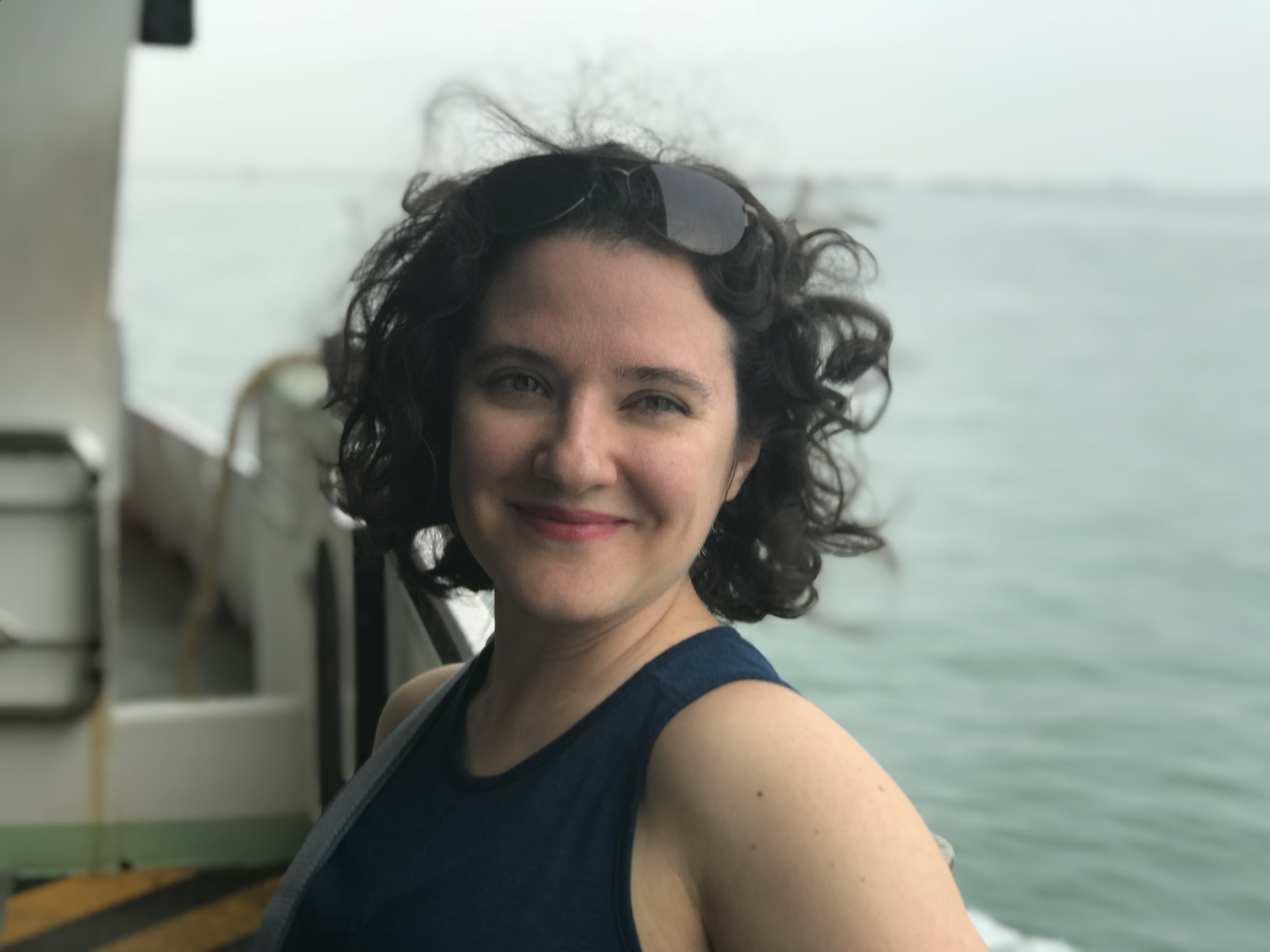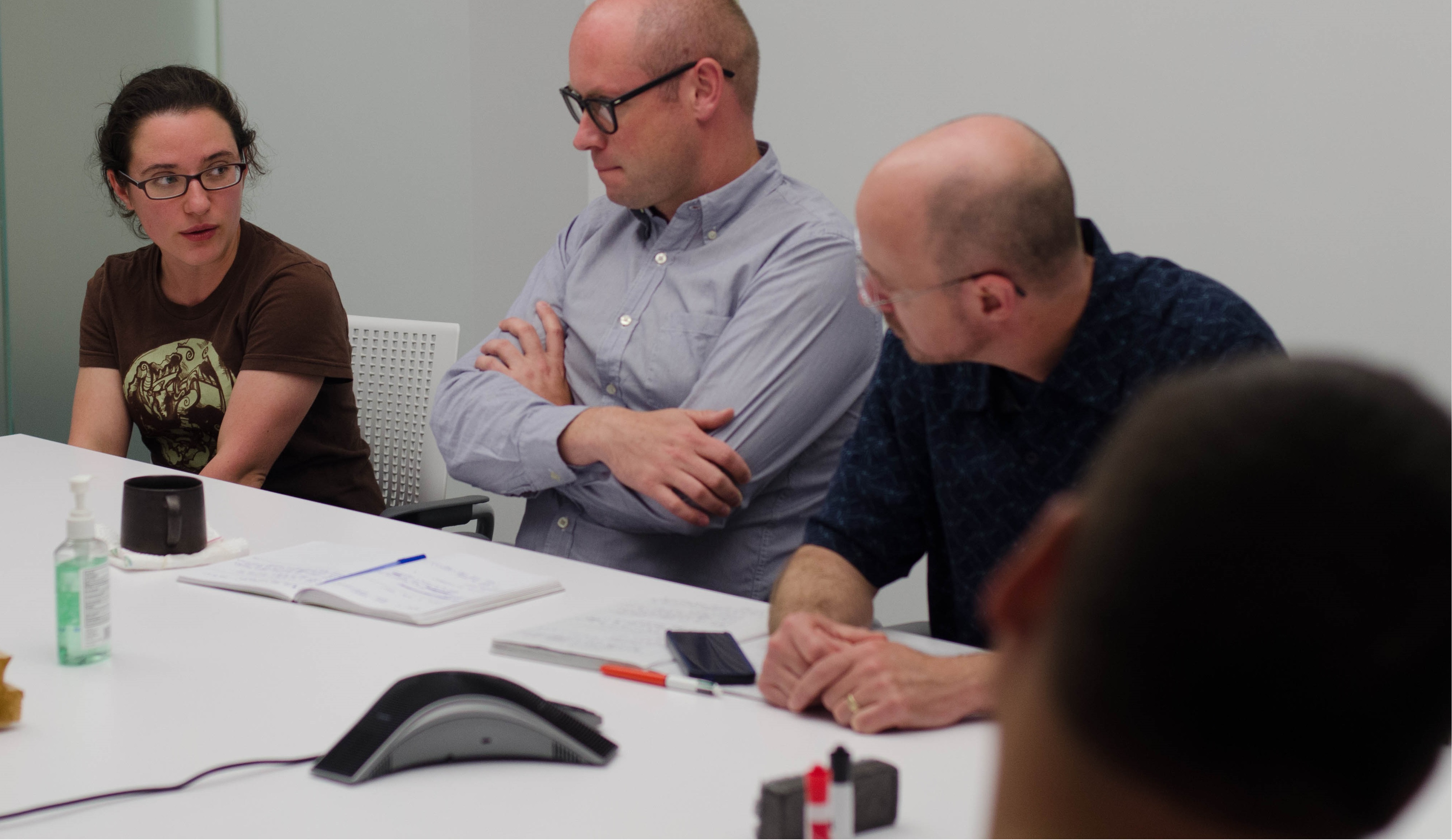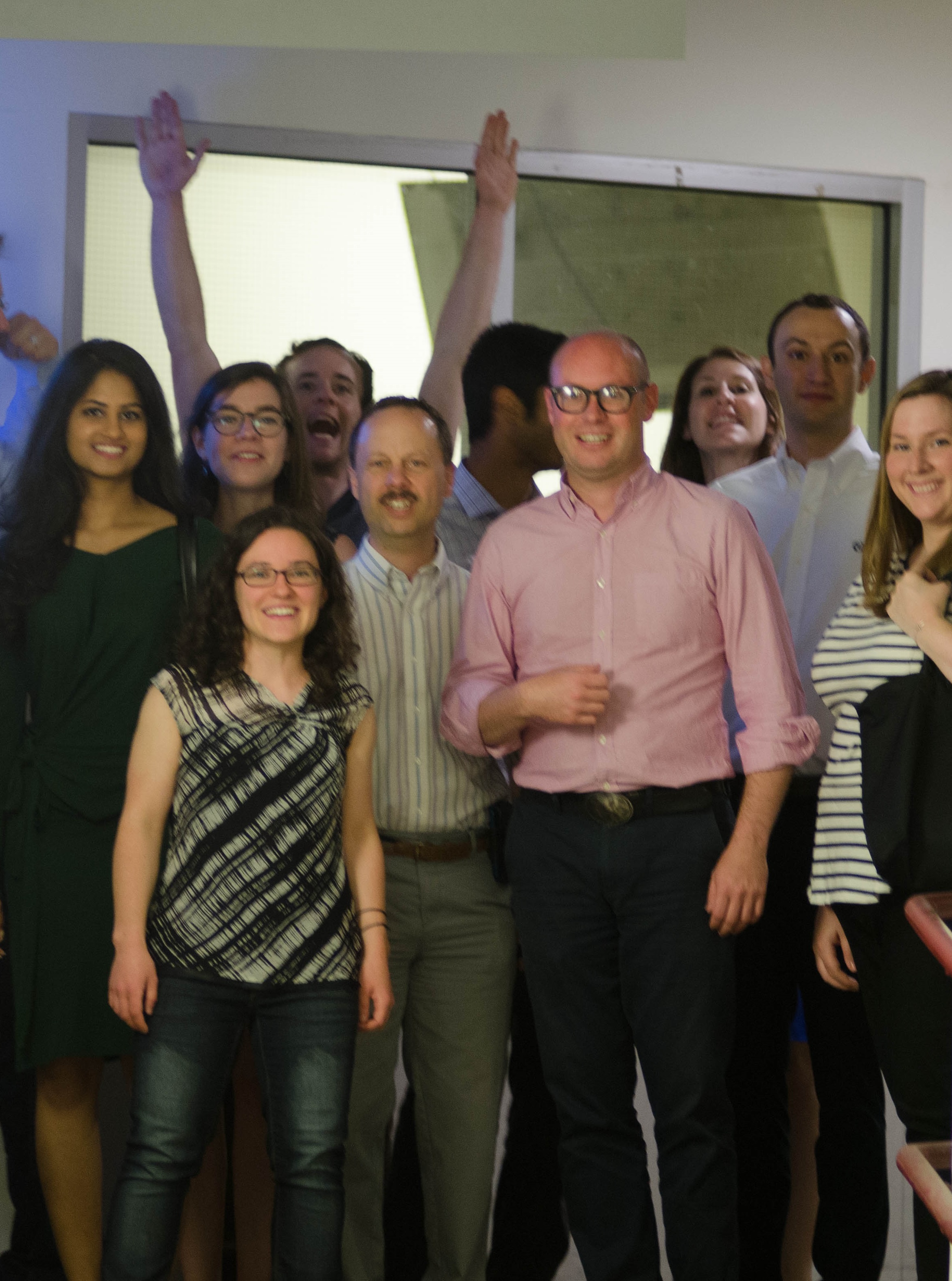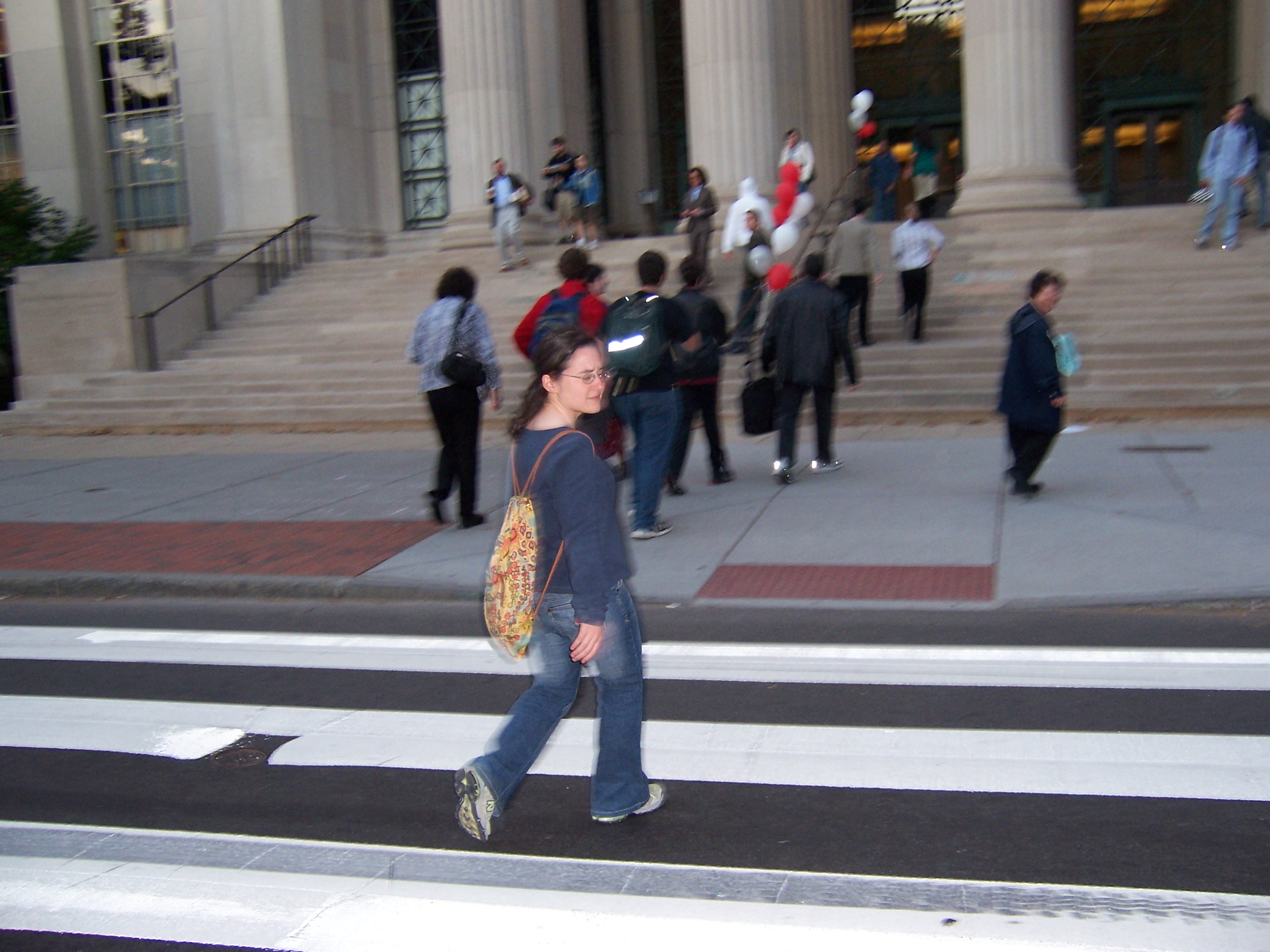
Hi, I'm Denise Ichinco
I am a leader, experienced engineer and an analytical thinker, among other things. I live in Boston, MA.How I work.
I love using technology to create results for the business. I'm less about the "how" and more about the "what" and "why." I enjoy making tradeoffs between different ways of developing software.
I build teams that disagree respectfully, take ownership, and continuously improve.


Dynamic leader.
My team at Amazon Alexa owns two mission-critical pieces of software. One is a runtime service that is responsible for some of the most popular Alexa answers. The other is an internal facing tool. The service is known throughout Alexa for having low latency (p50 response time is 10ms), high availability (less than 6h of downtime in 2017), and for being scalable (each server handles 100tps).
I manage 7 developers, from interns to Senior Software Engineers. I focus on driving operational excellence, developing strong agile processes, and meeting deadlines for delivery to our customers. I'm also experienced at managing high and low performers.
At Nara Logics, I was responsible for one software developer and one intern. My team interfaced directly with prospective clients. I saw an opportunity to simplify the process of onboarding new categories of items to recommend by moving the configuration for the categories to the database. I spearheaded a project to create a RESTful interface that enabled one of my collegues to build an interface for onboarding clients.
Experienced engineer.
I have 8 years of experience as a software engineer. The majority of that is in building server-side software in Java and Python. I write solid, testable code that scales well both on the server and in the database.
At Nara Logics, I initially joined the data platform team. The data platform team owned a pipeline that synthesize data ingested from various sources (like lists of hotels or restuarants) so that it was available for recommendations. This was quite challenging and often involved making tradeoffs about how much configurability to add. I worked on projects to improve our ability to recognize that two strings refer to the same "entity", to build manual overrides, and to increase international support. My focus as I coded was to improve test coverage and ensure the code would generalize across domains.
At SmarterTravel Media I worked on the Search Engine Marketing Team. I built the software that aggregates the data into reports and communicates with the partners (ie, Google or MSN) to make bidding strategy changes. My focus was improving the performance of automated jobs, increasing the useability of the tools, and improving access to data via self-service reporting. I reduced the memory usage of the main bidding job by loading data incrementally and diagnosing memory leaks. I reduced the runtime of the sync job from weeks to hours by reducing the number of database calls.
The team at Quickhit was building the first NFL licensed online football game. I developed a 3D client in Unity3D to replace their existing flash client on an aggressive schedule. I replicated the structure for connecting to the server and developed the infrastructure for displaying the UI and controlling the game state. I gave a talk at Unite 2010 about some of the problems (and solutions) we encountered integrating the game into the web, including many of the networking issues we encountered.
My formal background in computer science includes coursework in 6.001, Software Development, Algorithms, User Interface Design, Computational Cognitive Science, Artificial Intelligence, Circuits and Electronics, and Discrete Math.

Analytical roots.
I developed a solid understanding of statistics and experimental design by studying cognitive science at MIT. I understand how to answer questions with data and can avoid common pitfalls. At work, I have used these skills to design benchmarking studies that were accepted by academic conferences and improve the yield of bidding algorithms for online advertising.
When I'm investigating data, I usually start by building with a visualization and looking at a sample of the raw data. This ensures that we don't miss important trends the might hide in summary statistics like the average.
At Nara Logics I debugged, diagnosed, and optimized recommendations for our clients. I designed baselines to determine the effectiveness of our algorithm. I co-wrote a white paper that was presented at RecSys 2016 during the industry session by the CTO.
During my time at SmarterTravel Media I worked on the Search Engine Marketing team. One of the key challenges was to optimize the price they paid for online advertising. Most of the bidding was done using rules systems, so I investigated whether we could improve our yield using machine learning techniques. (Note: I am not a machine learning engineer.) I found that introducing controlled randomness (via multi-armed bandits) improved yields over 43% on high volume keywords.
As an undergrad, I studied Cognitve Science at MIT. Cognitive scientists study the way that the brain processes the world around us and how one basic unit (the neuron) can combine to create the behavior we see in people. So a cognitive scientist might study vision, language, morality, the process by which any of these develop in children, or situations where they fail to develop. Unlike chemistry or physics, doing new work in cognitive science doesn't have to include an expensive machine or mastering laboratory techinques. As an undergrad, I was able to engage with problems at the "forest" level, not just the "trees," which involved a lot of thinking about how to read the results of someone else's work; about how to design an experiment to test a hypothesis; about how to interpret and visualize data; and about how to present those results persuasively.
I spent a lot of time in TedLab, where I analyzed the permissible orderings of sentences/ideas in a text (discourse analysis). My project with Michael Frank looked at cross-situational learning. I presented the paper at the Conference of the Cognitive Science Society in 2009. I've also worked in neuroscience labs with Nancy Hayes and Michale Fee.
But I've been doing science even longer than that. Just ask Prof. Nick Agostino.
Speaker.
I am a confident and purpose-driven public speaker and have presented both locally and internationally.
Most recently, I sat on a lunch panel at ReDev Boston in 2018. Teodora Stoian, Evelyn Liang, and I discussed Scaling Teams at Amazon.
Prior to that, I attended the Unity Developer Conference (Unite 2010) to share tips on Advanced Webplayer Integration in Montreal.
As an undergrad, I presented my work on cross-situational learning at CogSci 2009 in Amsterdam and attended the Cornell Undergrad Linguistics Colloquium to present a paper.


About me.
I took all of the "pirate" classes at MIT: sailing, fencing, and pistol. I also learned to ice skate, tried out archery, and practiced judo. Sailing was my favorite, although I haven't had the chance to do it since. Pistol was my least favorite, so of course everyone always suggests it as a fun outing.
I speak English natively, Spanish comfortably, and Chinese uncomfortably. Besides those three, I love learning languages and have convinced my native speaker friends to teach me a smattering of relatively impractical phrases.
I like being outside. I like being on the tops of mountains and the middle of rivers. It's a completely different kind of decision making.
I have never won a single hand of poker.